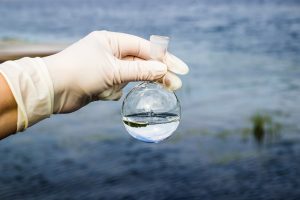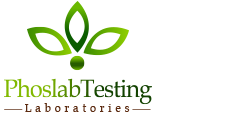- HOME
- Services
- Environmental Testing
- BTEX Testing Services
- Volatile Organic Compound (VOC) Testing
- Total Recoverable Petroleum Hydrocarbons Testing and Analysis
- Pesticide Testing and Analysis
- Polycyclic Aromatic Hydrocarbons Testing
- Hazardous Waste
- Wastewater Testing
- Soil Testing
- TCLP Testing
- SPLP Testing
- RCRA Metals TCLP Analysis
- Agriculture Testing Laboratory
- Brownfield Testing Laboratory
- Mineral Testing Laboratory
- Chemical Testing Laboratory
- Field Sampling
- Phoslab Environmental Consulting
- Resources
- About Us
- Contact Us
- PhosBlog
Call Us Toll Free! (863) 682-5897
Florida Industrial Sampling
Phoslab Environmental Testing Services
 Industrial water sampling is becoming an increasing necessity as the Environmental Protection Agency imposes stricter regulations at the federal and state level. With need for quality assurance comes state-approved entities like Phoslab Testing Laboratories. Compliance is especially important for Florida sectors that produce industrial effluent runoff. Learn more about industrial sampling and why it’s crucial from both a public safety and regulatory standpoint.
Industrial water sampling is becoming an increasing necessity as the Environmental Protection Agency imposes stricter regulations at the federal and state level. With need for quality assurance comes state-approved entities like Phoslab Testing Laboratories. Compliance is especially important for Florida sectors that produce industrial effluent runoff. Learn more about industrial sampling and why it’s crucial from both a public safety and regulatory standpoint.
Florida Surface Water Sampling Overview
Any industry that uses or distribute water in any capacity must test their water source for quality assurance. This goes for any industry that acquires their source from industrial water and not a domestic source.
How is industrial wastewater defined according to Florida law? According to EPA, industrial wastewater is defined as the byproduct of runoffs from commercial activity. Water is required in just about every industry, including food and beverage production, clothing manufacturing, waste disposal, automotive assembling, construction, and many others. The end product of the used water is the wastewater, or more formerly known as effluent. The wastewater is highly contaminated; before being discharged into a field, they must be removed of certain pollutants, such as metals, nitrogen, and pathogens. Once the water is treated, they can be safely discharged into bodies of water or reused in plant operations.
Governmental Regulation Outline
Florida has its own guidelines regarding industrial wastewater handling. The protocol is outlined under the Industrial Wastewater Program, an offshoot of the Florida Department of Environmental Protection (FDEP), which itself is a branch of the EPA.
New Florida industries and establishments that require water use in any industrial capacity must acquire a permit issued by the EPA in order to lawfully discharge industrial effluent to ground and surface water.
Such companies may need to undergo industrial wastewater sampling as part of the permit approval process.
What Industrial Wastewater Is Not
Industrial wastewater is not to be confused with domestic wastewater or municipal wastewater. The former refers to effluent generated from residential households. Toilet and shower water that exit the drain become domestic wastewater.
Municipal wastewater includes wastewater generated from B2C businesses, such as restaurants, departments stores, malls, etc. Municipal wastewater is especially confused with industrial wastewater. Companies that utilize municipal wastewater are not subject to the same water testing requirements as B2B and industrial companies.
Why Florida Industrial Field Sampling Matters
Quality assurance of industrial wastewater is pivotal for public health. As mentioned, industrial waster ultimately ends up in natural bodies of water and even in municipal and domestic water supplies. If the water isn’t properly treated, then it may still contain residues of harmful contaminants and pose a public health hazard to both human and wildlife population.
Florida Industrial Sampling Collection Procedure
Precision and accuracy are vital to determine water purity. Phoslab utilizes methodologies approved by the EPA. All methods are also approved at the state level by FDEP, which made updates and new amendments to its standard operating procedures effective April 16, 2018. See the FDEP’s official Florida Department SOP page for surface, ground, drinking, and wastewater sampling.
Standard operating procedure FS 2400 outlines the provisions for wastewater sampling. Crew members dispatched to collect samples must be knowledgeable in the precise process during the water collection and handling. They should identify ahead of time, for example, the analytes to be collected or whether cross-sectional sampling is required. At the sampling collection site, they must also identify the point of water where flow mixing is the greatest and where solid settling is minimal.
Such an intricate procedure is why industries should only entrust the services of a certified and state-approved testing laboratory like Phoslab.
Wastewater Sample Testing Procedure
Industrial wastewater testing is comprehensive and encompasses four categories: physical, solids, chemicals, and biologicals. Depending on the industry and nature of the test, heavy metals may be a 5th category.
- Physical – this includes measuring the water for pH balance, turbidity, and conductivity (salinity)
- Solids – tests for total suspended solids (mainly calcium, magnesium, sulfate, and chloride). Total volume may affect water temperature and dissolved oxygen levels. High suspended solid content may render wastewater unsuitable for industrial reuse.
- Biological – This includes bioassays and coliform measurements. The latter provides data on the possible presence of harmful pathogens.
- Chemicals – This measure the water’s biochemical oxygen demand (BOD), which is an indicator of organic matter in industrial effluent. High BOD levels can potentially eat organic materials that provide oxygen. This can adversely affect aquatic life.
- Metals – certain industries produce heavy metals in the effluent. This is especially true with respects to the plating, metal finishing, textile, and pulping industries. The four major metalloids that constitute a public health threat include mercury, lead, cadmium, and arsenic.
Entrust Phoslab for Industrial Field Sampling
Our field sampling is comprehensive and closely follows all protocols outlined by the EPA and FDEP. To remain in good standing, any industry that handles industrial wastewater must remain in compliance. To satisfy state and federal criteria, contact Phoslab Testing Laboratories for a field sampling and confirmation that wastewater runoff produced by your company is within safe levels.
